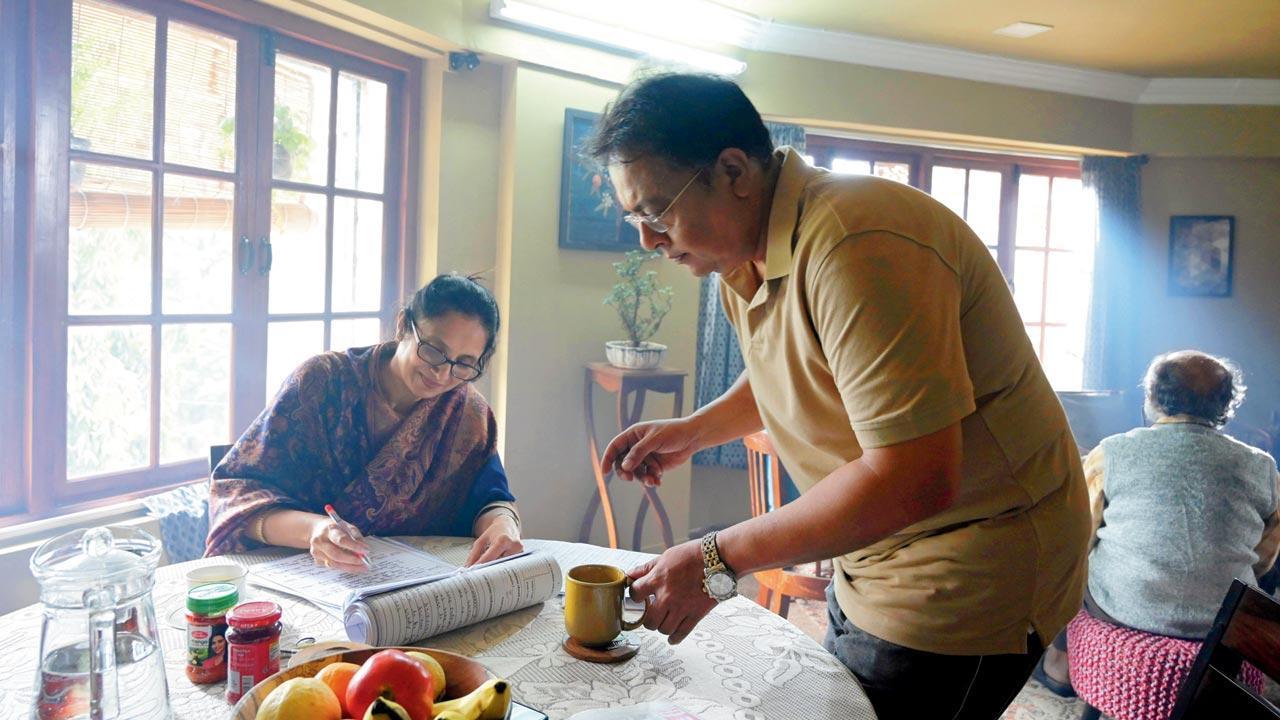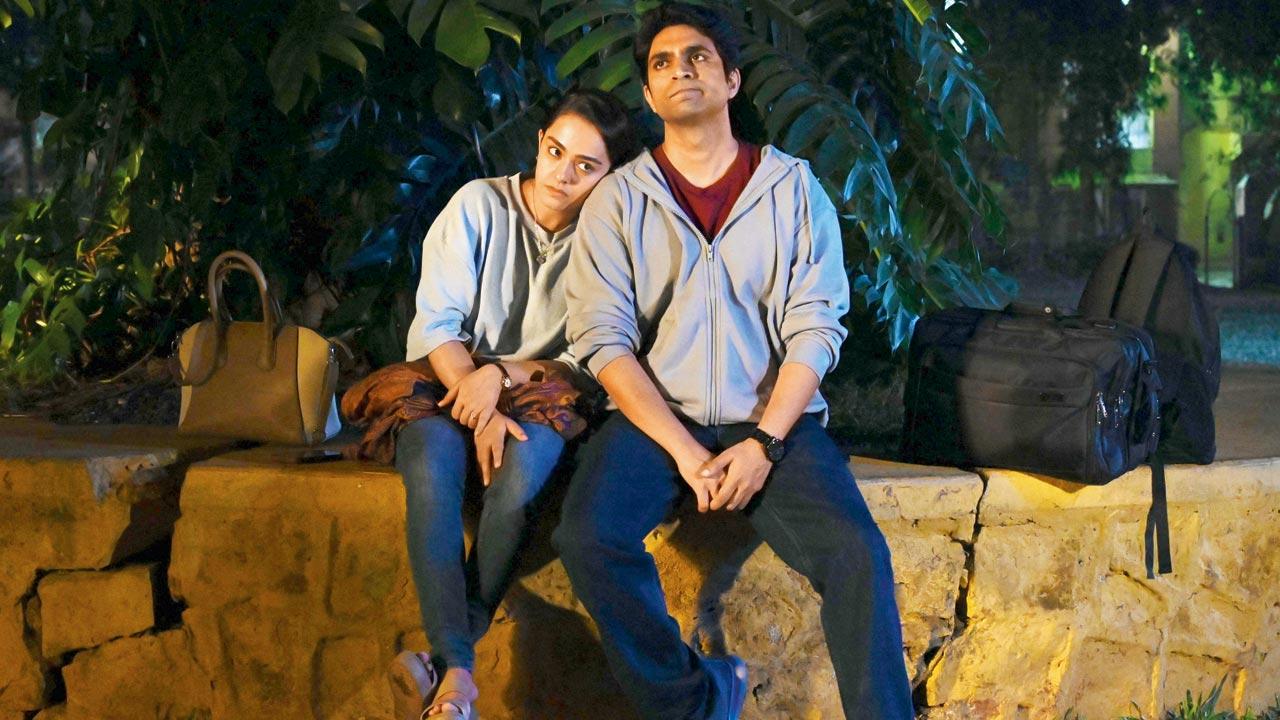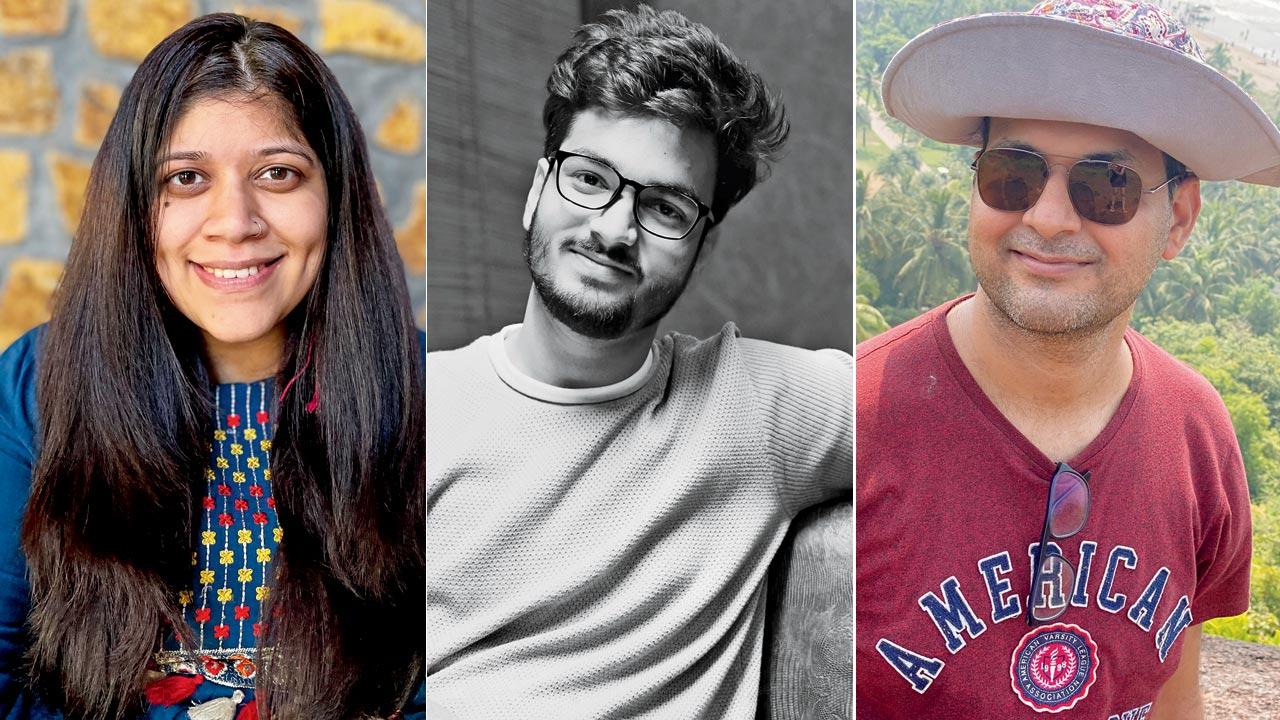Think you’re progressive? Family Aaj Kal’s makers dissect society’s biases through the story of a ‘liberal’ family that can’t stomach their daughter dating a cab driver

Sonali Sachdev and Nitesh Pandey play parents to Apoorva Arora
In 2007, the Nikkhil Advani-directed Salaam-e-Ishq showcased a foreign tourist falling in love with Govinda’s taxi driver character. Even as many of us called it unrealistic, we were still rooting for the love story, because who doesn’t want the underdog to win? But that’s on screen. In real life, we wouldn’t be comfortable taking the same stand if faced with a similar situation. Despite shouting from rooftops that love knows no boundaries, we tend to create these fences. Then, are we really progressive?
Family Aaj Kal puts forth this question as it shows how even the most progressive families can be classist and have societal biases ingrained in them. Starring Apoorva Arora, late Nitesh Pandey and Sonali Sachdev, the SonyLIV series revolves around a ‘progressive’ family that is up in arms when the daughter announces that she is dating a taxi driver. The creative minds behind the series—director Parikshit Joshi, writer Manoj Kalwani, and Namrata Sharma, director, Impact and Partnerships, Civic Studios—dissect the messaging behind the series and why it’s important to show how class divide is entrenched in our society.
 Apoorva and Prakhar Singh in Family Aaj Kal
Apoorva and Prakhar Singh in Family Aaj Kal
Cracking the theme
Believing that entertainment and social message can co-exist and that research helps bring actionable insights to the table, Sharma, whose expertise lies in the intersection of gender, education, and media for social impact, says the series’ core idea was arrived at after six months of jamming. “Some of the ideas came after the initial research and speaking to young people. We realised that the idea of family and their approval matters to the youth in India,” she says. Kalwani notes that while youngsters in foreign countries take up jobs at McDonalds, coffee shops, or as Uber drivers when they move out of their home at 18, it’s not true of Indian youth. “No one looks down on them, but there is so much classist behaviour here that if anyone does a job that doesn’t match their status and class, that person is judged. People assume he must have not received good education or that he mingled with the wrong company. [We thought] if such a conflict is introduced in a household that believes they are progressive, it would be an interesting angle to the story,” he shares.
That’s how they cracked the theme of Family Aaj Kal—the protagonist’s parents, played by Sachdev and Pandey, who pride themselves on being liberal, object to their daughter dating a taxi driver. With this, they realise that they may not be as open-minded as they believe themselves to be. Kalwani says, “A huge section of the youth is jobless today, but they refuse to do [menial] jobs because a certain class of people look down on them. In our production house, I know of so many people who deliver food parcels for Swiggy and Zomato, and are also struggling actors. While they are doing the job, they refuse to divulge it at home. We thought we needed to address this.”
 Namrata Sharma, Parikshit Joshi and Manoj Kalwani
Namrata Sharma, Parikshit Joshi and Manoj Kalwani
Quantifying class divide
In early 2022, Civic Studios conducted a survey to identify the Indian youths’ attitude, their anxiety triggers and priorities. Rampant unemployment was their biggest cause of concern. “If you marry that idea with class divide, and how certain jobs are looked down upon, it becomes more relatable to the audience,” explains Sharma.
Another interesting factor is that while people may frown upon certain professions on home turf, they have no qualms taking up a menial job when migrating to a developed country. Why is this divide seen only in India? Sharma reasons that in some countries, blue-collar jobs are not looked down upon because they award respect to every profession, especially when “those jobs are paid equally”. “The class divide gets bridged when income [equality] is maintained. While that is not true for all countries, in India, divide is not based on class alone.” Joshi adds, “We’ve been an aspiring country for the longest time. The complications that come with the aspirations form a complicated scene. Development plays a big role in it because with development, there is better education.”
Maintaining sensitivity
Usually, humour plays a crucial role in putting forth the intended message. However, we often tend to depict stereotypes before letting the message seep in. Kalwani says he actively avoided the trope while writing the show. “When you are writing to make things funny, people often compromise with their ideas. A lot of content on LGBTQiA+ [has often] met a similar state in films. The pattern is to make homophobic jokes, and then in the end, accept that they are wrong. [The same pattern is followed] if we are making a movie on a bald guy. It’s not that we didn’t make any jokes in our show, but we always thought that no cab driver watching the show should feel humiliated.”
Let’s talk
The series, which began streaming from April 3, makes us all confront our personal biases. While many have applauded the larger cause, some claimed the story was outlandish. “A friend, while complimenting me on the series, asked me whether falling in love with a taxi driver is even a reality. I believe the show is made for people like that. It is good that this question came to their minds,” shares Kalwani, adding that the scepticism will kickstart conversations on the subject.
Sharma, who is tracking reviews and social media reactions, notes that feedback has been largely positive. More importantly, she says the show is doing what they wanted. “It is highlighting a topic and bringing it to the centre of conversations. We’ve been tracking and reading different reviews to see what people pick out from the story. The goal of the media is to not radically change things; the idea is to plant that seed.”
The way ahead
Now that the idea has been seeded, the next step is to ensure that the discussions keep going. “We want to consciously take the show to the people from the community. Showing it to cabbies will be part of generating further conversation. The shelf life of content is not only when it is released. We are now committed to keep the conversation going,” signs off Sharma.
 Subscribe today by clicking the link and stay updated with the latest news!" Click here!
Subscribe today by clicking the link and stay updated with the latest news!" Click here!








